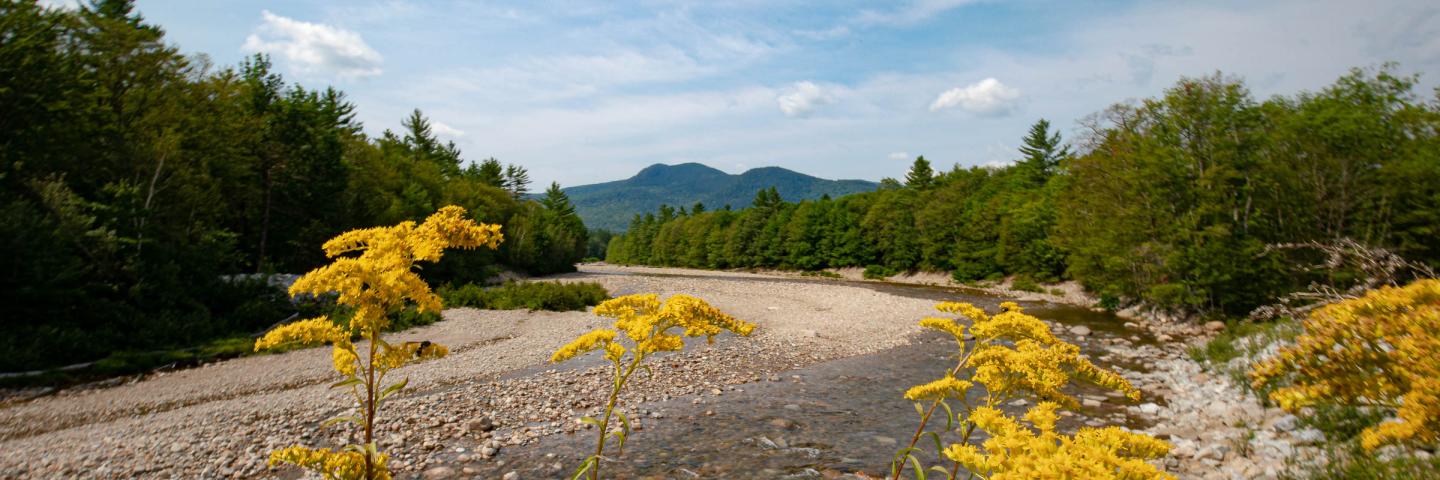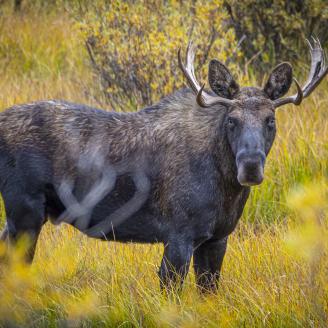
New Hampshire - a varying landscape.
Find out how NRCS works with landowners in the granite state to conserve resources for future generations, protect local farmland and increase farm viability to feed a growing Nation.
Welcome to New Hampshire - The Granite State!
From Atlantic coastal waters to tall mountain peaks, our landscape is varying.
We at the U.S. Department of Agriculture's Natural Resources Conservation Service (USDA-NRCS) exist to address resource concerns across the state to ensure natural resources are available to future generations.
What is a Resource Concern?

A formal definition of a Resource Concern is: "An expected degradation of the soil, water, air, plant, or animal resource base to an extent the sustainability or intended use of the resource is impaired.”
In simpler terms, a resource concern refers to a natural or human caused issue that can lead to lower production and value of our natural resources – the Soil, Water, Air, Plants, Energy, and Animals (SWAPA) that all life depends on. When these natural resources start to decay or are threatened, they become a “Resource Concern.”

Thanks to the morning light, Thanks to the foaming sea, To the uplands of New Hampshire, To the green-haired forest free.
Resource Concerns in New Hampshire - SWAPA

Soil
“Out of the long list of nature’s gifts to man, none is perhaps so utterly essential to human life as soil.”
— Hugh Hammond Bennett
Healthy soil is critical to successful agriculture and is vital to produce the food and fiber we use every day. When soil issues arise, from soil organism habitat degradation to erosion to nutrient depletion, they can have long-term and costly impacts to soil health and production goals.
Learn more about New Hampshire Soils

Water
"When the well is dry, we’ll know the worth of water."
— Benjamin Franklin
Water is a vital component of successful agriculture. Sufficient amounts of clean, usable water enable crops and livestock to thrive. Aside from agricultural benefits, water is also necessary to preserve the environments of many sensitive or protected lands such as wetlands. [[Learn more]]

Air
“Water and air, the two essential fluids on which all life depends, have become global garbage cans.”
— Jacques-Yves Cousteau
Clean air is fundamental to our and our environment’s well-being. Contaminants in air can affect our health, and also the health of wild animals and livestock. Agricultural operations can have significant impacts on air quality, however there are programs and practices available to help prevent and alleviate issues. [[Learn more]]

Plants
"A man has made at least a start on discovering the meaning of human life when he plants shade trees under which he knows full well he will never sit."
— D. Elton Trueblood
Plants are a vital component of healthy environments and ecosystems. They can help reduce erosion and improve water quality by holding soil in place, provide food and habitat for wildlife, and supply our food, building materials, fuel, and clean air. [[ Learn more]]

Animals
"Plans to protect air and water, wilderness and wildlife are in fact plans to protect man."
— Stewart Udall
Both domestic and wild animals are a critical component of ecosystems and our environment. Domesticated animals, such as livestock, provide us with food and fiber, while wild animals support healthy ecosystems. [[ Learn more ]]

